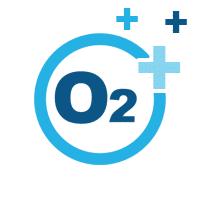Brain Damage
Brain damage is an injury that causes the deterioration or destruction of brain cells. Brain damage includes both Traumatic Brain Injury (TBI), caused by an external force, and Acquired Brain Injury (ABI), occurring at the cellular level. The severity of damage can vary based on they type of injury, but can range from headaches, confusion, and memory problems, to more severe cognitive, behavioral, and physical disabilities.
Benefits of Hyperbaric Oxygen Therapy for Brain Damage:

Increases Amount of Oxygen in the Blood
Stimulates development of new blood vessels from pre-existing vessels as well as the natural development of new blood vessels.

Reduces Inflammation & Swelling
Suppresses the cellular activity of the immune system which triggers swelling when an injury or damage to the body occurs. While this reaction is meant to start healing and protect from injury it can result in secondary injury, pain, and prolonged recovery time.

Preserves, Repairs, & Enhances Cellular Functions
Boosts cellular metabolism, promotes rapid cell reproduction, and enhances collagen synthesis. Collagen is a protein in connective tissues like skin.
Key Research on Hyperbaric Oxygen Therapy for Brain Damage
Recent News on Hyperbaric Oxygen Therapy for Brain Damage
Gaining Independence from Suicidal Ideation
Treat Brain Wounds with Hyperbaric Oxygenation and other Alternative Therapies "VA’s top clinical priority is preventing suicide among all Veterans — including those who do not, and may never, seek care within the VA health care system.” Yet nowhere in their...
Veteran says oxygen therapy is helping his PTSD
RALEIGH, N.C. — Post-traumatic stress disorder and the lack of care for it are two issues plaguing the veteran population. Now, there’s an option: hyperbaric oxygen therapy. The option became available after the state legislature designated funding for this purpose....
HBOT News Network Podcast: Elena Schertz & Extivita RTP
Elena Schertz, NP of Extivita-RTP in North Carolina, discusses how her clinic is actively healing the injured and sick with hyperbaric oxygen therapy (HBOT), including veterans, sports athletes and COVID long-haulers. She explains the proven benefits of HBOT – what it...
Related Indications
Schedule a Consultation
Additional Research
Vitamin C alleviates LPS-induced cognitive impairment in mice by suppressing neuroinflammation and oxidative stress
Abstract Neuroinflammation is believed to be one of the primary causes of cognitive impairment. Previous studies showed that the antioxidant vitamin C (Vit C) performs many beneficial functions such as immunostimulant and anti-inflammatory actions, but its role in...
Clinical and Biochemical Outcomes Following EEG Neurofeedback Training in Traumatic Brain Injury in the Context of Spontaneous Recovery
Abstract It has been found that reduction of posttraumatic stress symptoms is positively associated with the reduction of postconcussive symptoms. Cortisol is commonly used as a biomarker of stress. Understanding the role of posttraumatic stress and cortisol in...
Effect of hyperbaric oxygen therapy on chronic neurocognitive deficits of post-traumatic brain injury patients: retrospective analysis.
The aim of the study is to evaluate the effect of hyperbaric oxygen therapy (HBOT) in participants suffering from chronic neurological deficits due to traumatic brain injury (TBI) of all severities in the largest cohort evaluated so far with objective cognitive function tests and metabolic brain imaging. A retrospective analysis was conducted of 154 patients suffering from chronic neurocognitive damage due to TBI, who had undergone computerised cognitive evaluations pre-HBOT and post-HBOT treatment. The average age was 42.7-14.6 years, and 58.4% were men. All patients had documented TBI 0.3-33 years (mean 4.6-5.8, median 2.75 years) prior to HBOT. HBOT was associated with significant improvement in all of the cognitive domains, with a mean change in global cognitive scores of 4.6-8.5 (p<0.00001).
